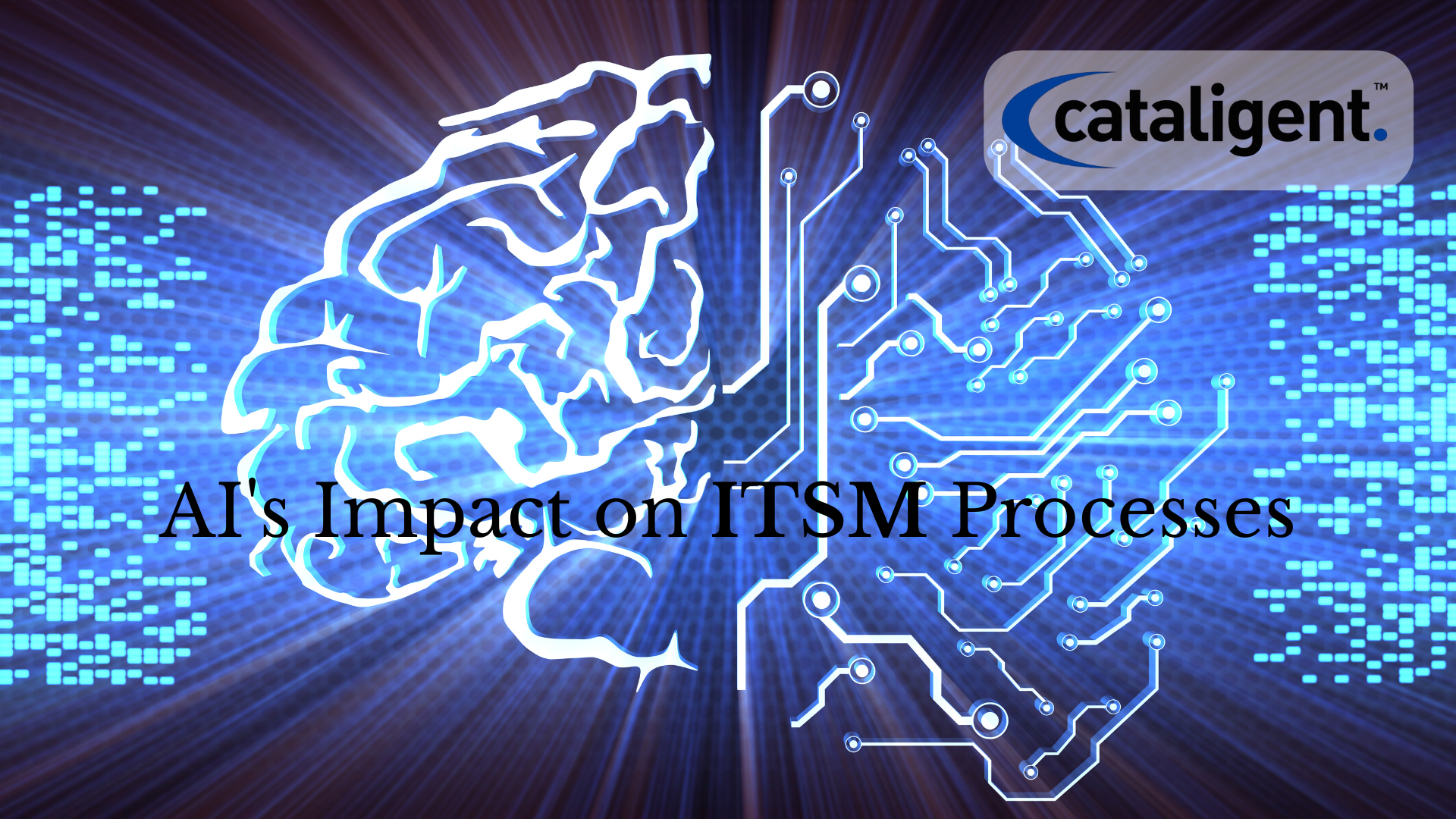Introduction
Artificial Intelligence (AI) is rapidly transforming the landscape of Information Technology Service Management (ITSM). From streamlining service desk operations to enabling predictive analytics, AI is redefining how IT services are delivered and managed. The integration of AI technologies into ITSM frameworks leads to improved efficiency, enhanced user experiences, and proactive service management. This document explores the multifaceted impacts of AI on ITSM, including the benefits, challenges, and future possibilities.
AI-Driven Automation in ITSM
1. Incident Management
AI significantly enhances incident management by automating ticket categorization, prioritization, and routing. AI-powered chatbots can handle routine queries, allowing human agents to focus on complex issues.
Impacts:
- Reduced resolution times
- Consistent response quality
- Enhanced user satisfaction
2. Change Management
AI helps assess the potential impact of changes, forecast risks, and recommend optimal windows for implementation. Machine learning algorithms analyze historical data to predict the outcomes of proposed changes.
Impacts:
- Minimized service disruptions
- Informed decision-making
- Increased change success rates
3. Problem Management
AI enables proactive problem management by identifying patterns in incidents and predicting recurring issues. This early detection helps reduce downtime and improves system stability.
Impacts:
- Faster root cause analysis
- Prevention of major incidents
- Continuous improvement of services
Enhancing User Experience
Virtual Agents and Chatbots
AI-powered virtual agents provide 24/7 support, handle multiple requests simultaneously, and deliver consistent responses. These agents use natural language processing (NLP) to understand user intent and resolve issues effectively.
Impacts:
- Instant user support
- Improved user engagement
- Reduced workload on service desk teams
Personalized Services
AI customizes the user experience based on individual behavior and preferences. ITSM platforms can offer tailored recommendations, notifications, and knowledge base articles.
Impacts:
- Increased user satisfaction
- Higher adoption of self-service tools
- Improved productivity
Predictive and Proactive Capabilities
Predictive Analytics
AI enables predictive analytics by analyzing large volumes of historical data to forecast future incidents, performance issues, or capacity bottlenecks. This helps IT teams address issues before they impact users.
Impacts:
- Proactive service management
- Optimized resource allocation
- Data-driven decision-making
Intelligent Alerting
AI filters and correlates alerts from multiple monitoring tools to reduce noise and highlight critical issues. This improves incident response and avoids alert fatigue.
Impacts:
- Faster detection of anomalies
- Reduced false positives
- Prioritized response actions
AI in Knowledge Management
AI enhances knowledge management by automatically generating, updating, and recommending knowledge articles based on past incidents and solutions. AI can also analyze how users interact with content to improve relevance and accessibility.
Impacts:
- Richer knowledge base content
- Reduced resolution times
- Empowered end users and agents
Integration with DevOps and Agile Practices
AI supports DevOps and Agile ITSM by offering continuous insights into deployment pipelines, identifying inefficiencies, and automating routine tasks like testing and monitoring.
Impacts:
- Faster release cycles
- Improved collaboration
- Enhanced service quality
Security and Compliance Enhancements
AI assists in identifying unusual patterns, potential security breaches, and policy violations. By integrating with security information and event management (SIEM) tools, AI ensures a secure ITSM environment.
Impacts:
- Improved threat detection
- Faster incident response
- Enhanced compliance with regulatory standards
Challenges and Considerations
Data Quality and Availability
AI’s effectiveness relies heavily on the quality and volume of data available. Inconsistent or incomplete data can lead to poor outcomes and misinformed decisions.
Change Management and User Acceptance
Introducing AI in ITSM requires a shift in mindset and workflows. Employees may resist changes or lack the skills needed to work with AI tools.
Ethical and Bias Concerns
AI algorithms can unintentionally reinforce biases present in historical data. It’s crucial to ensure transparency, fairness, and accountability in AI-driven decisions.
Integration with Existing Tools
Seamlessly integrating AI into legacy ITSM platforms can be technically challenging and may require significant investment in infrastructure and skills.
Future Trends in AI and ITSM
Hyperautomation
AI, combined with robotic process automation (RPA), will drive hyperautomation, allowing end-to-end automation of IT service workflows.
AI-Driven Decision Support
Advanced AI systems will act as advisors, offering recommendations for decision-making based on real-time data, business goals, and user needs.
Conversational AI Evolution
Next-generation conversational agents will offer more natural, context-aware interactions, enhancing user satisfaction and trust.
Autonomous IT Operations (AIOps)
AI will lead to the rise of AIOps, where IT operations become increasingly self-healing, self-optimizing, and autonomous.
Best Practices for Leveraging AI in ITSM
- Start with a clear strategy aligned with business goals
- Focus on high-impact use cases like incident and request management
- Ensure data governance and privacy compliance
- Foster a culture of continuous learning and AI literacy
- Monitor performance and iterate based on feedback and outcomes
Conclusion
The integration of AI into ITSM represents a paradigm shift in how IT services are managed and delivered. By automating routine tasks, enhancing decision-making, and enabling proactive service management, AI empowers organizations to improve service quality, reduce costs, and drive innovation. However, realizing the full potential of AI in ITSM requires strategic planning, cross-functional collaboration, and a commitment to ethical and responsible AI use. As technology continues to evolve, organizations that embrace AI-driven ITSM will be well-positioned to thrive in the digital era.

